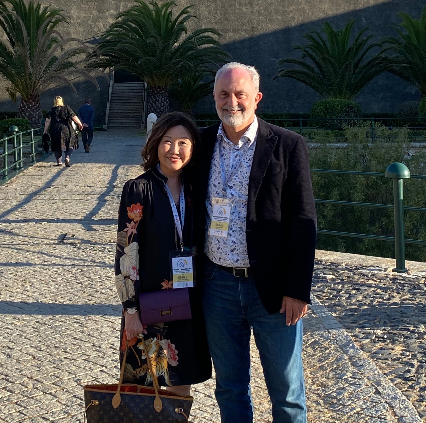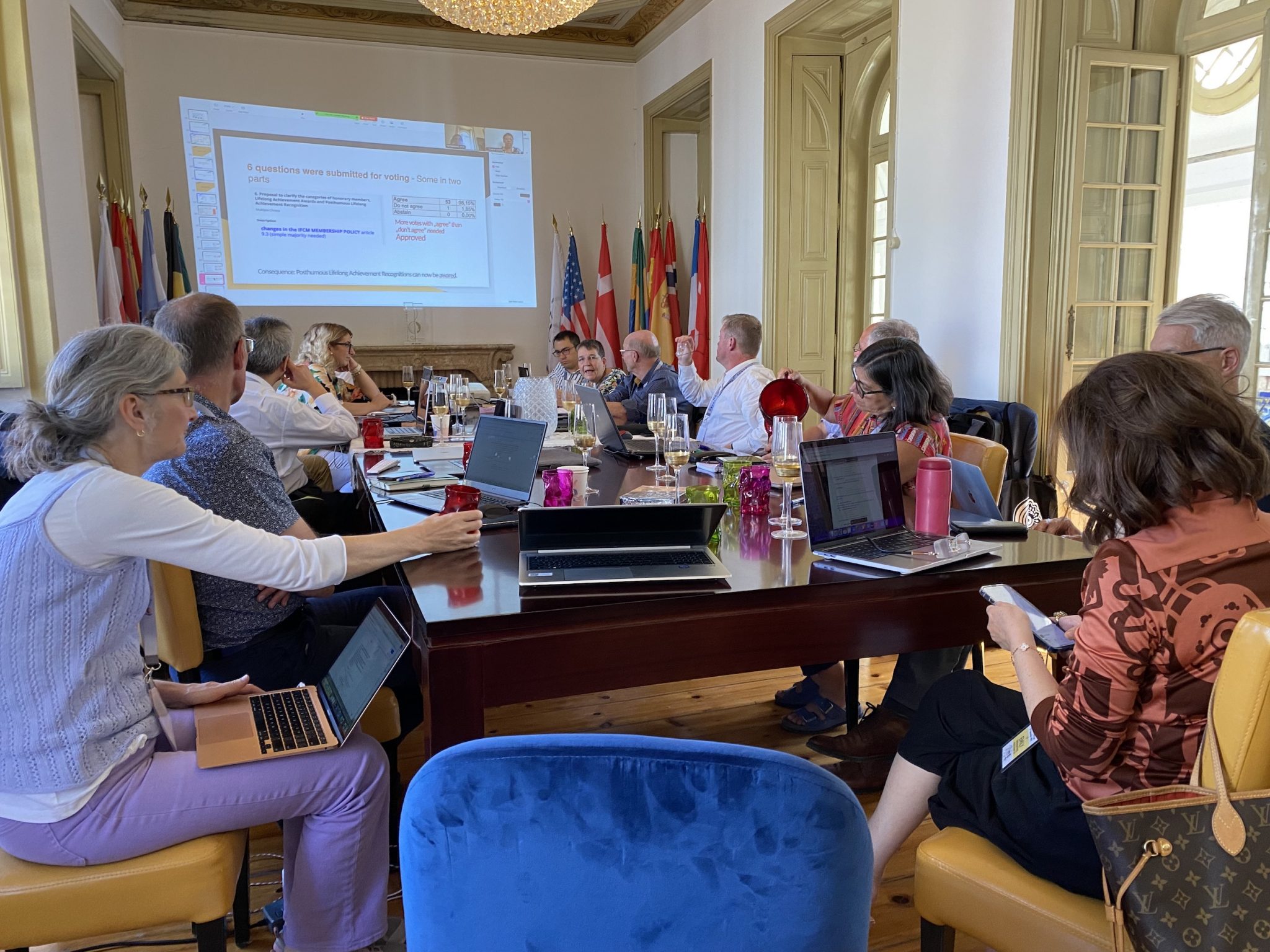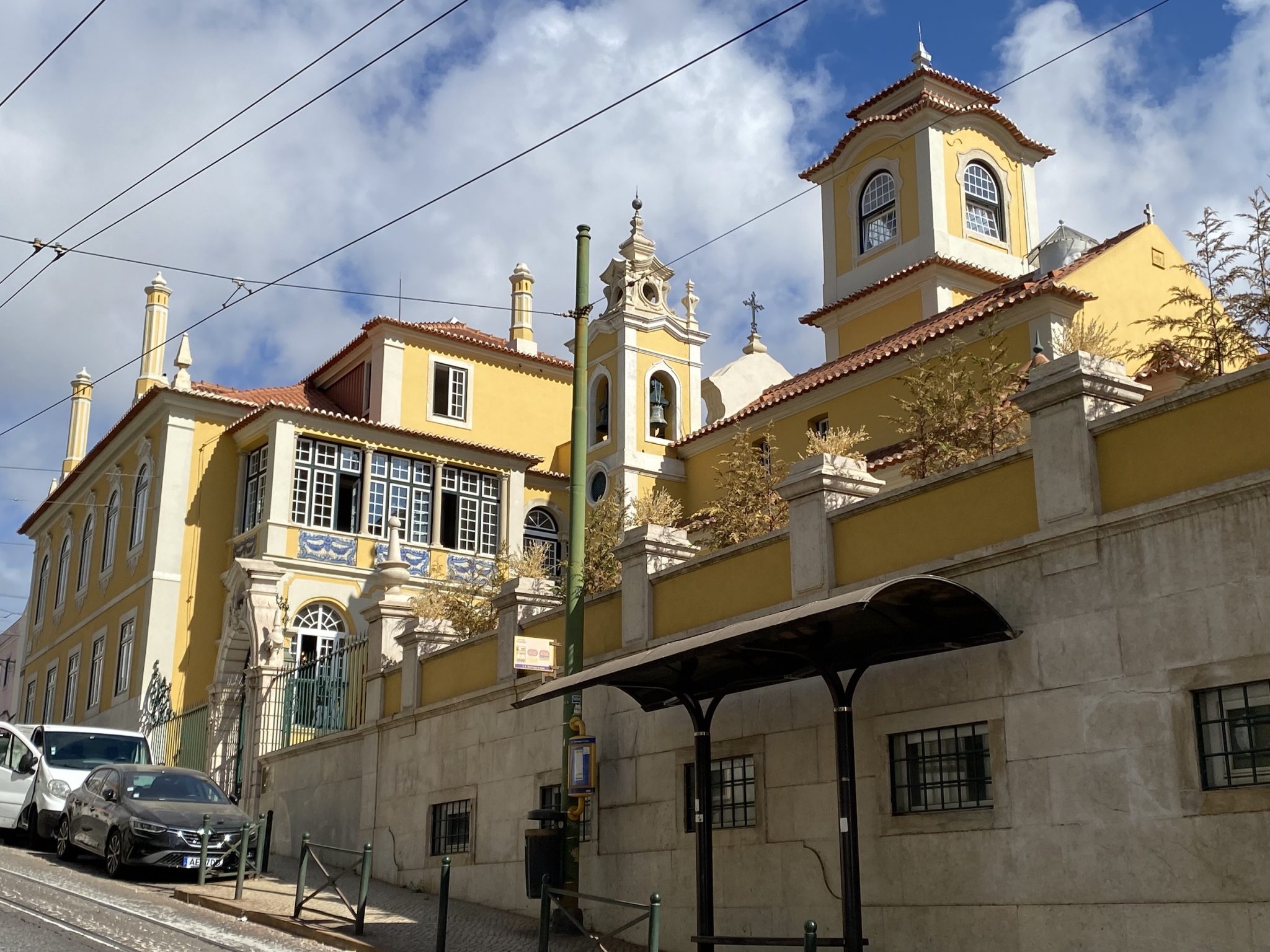
John Rosser reports on the 2022 IFCM General Assembly
7 Oct 2022

7 Oct 2022
NZCF’s inaugural Chair, John Rosser, recently travelled to Lisbon to attend the General Assembly of the International Federation for Choral Music (IFCM) and the 2022 World Choral Expo. John was elected to the Board of IFCM in December 2020 and is one of 16 board members representing regions from all around the world. He reports back on his experiences in Lisbon:
Zoom can only take you so far. After nearly two Covid-blighted years of my IFCM Board tenure, I’d become a little tired of meeting cordially with my international colleagues, at very strange hours, on the sort of issues that really needed in-depth, robust, face-to-face discussion – issues like what our response, if any, should be to the Ukraine situation; what future World Symposia should look like; indeed, what IFCM’s role is and why individuals, choirs and national organisations should subscribe. Hence, the chance to attend not only an in-person meeting but also a General Assembly and the World Choir Expo, all rolled into one, was too good to pass up. That it was in sunny Portugal helped, though the fares and flight times were less fun.
Lisbon was chosen as the venue because the Federation’s headquarters are now situated there, at the gorgeous Palacete dos Condes de Monte Real owned by current IFCM President, Emily Kuo Vong (pictured with me above). An almost full Board met at last, tightly packed and unmasked (quite a culture shock!), in one of many stunning rooms in this neo-baroque palace. We pored over finances and membership, looked at the budget and future of the Expo, and discussed both the upcoming World Symposium in Istanbul and the call for potential hosts of WSCM2026. There wasn’t enough time in a single day to debate all we needed to, but it was a good start and one we can build on.

That night we attended a large Expo welcome ‘party’ at the Forte de São Julião da Barra on the bank of the Tagus River, with speeches out on the massive stone courtyard and a short concert by a traditional Portuguese women’s choir in the catacomb-like interior. The following morning was taken up by the General Assembly, where we heard reports from the varied range of activities IFCM undertakes around the world and voted on a raft of new proposals. As one of the four-person Governance and Election Committee who proposed them, I’m pleased to report that the five automatic founding-member places on the Board have been abolished and that Oceania (NZ, Australia and the South Pacific) is now a stand-alone region with its own guaranteed seat.
Three very full days of World Choral Expo followed. At this early stage of its development the event is a kind of mini-Symposium, concentrating mainly on a series of concerts and a workshop programme. Of the performances I heard, highlights were a ‘Colourful Voices Gala’ featuring – separately and combined – Aarhus Girls’ Choir (Denmark), Youth Choir Cantemus (Moldova) and Shallaway Youth Choir (Canada), and two world-class performances from groups who were to have attended WSCM2020, Frieder Bernius’ Kammerchor Stuttgart and Ethan Sperry’s Portland State Chamber Choir. I had bittersweet chats with both choirs during the week, each expressing genuine disappointment at not having been able to come to Auckland.
The ‘EXchange Programme’ had four workshops running at the same time in four daily slots, so it was impossible to attend more than a cross section. I was asked to introduce a couple of talks that were of particular interest to me: one on the intersection between solo voice and choral terminology and the other by Salome Rebello on a fascinating immersive choral theatre project she undertook in India called ‘Lullaby, stranger’. Further noteworthy sessions were by Silja Fischer, Secretary General of the International Music Council, on the ‘Five Music Rights’ (a subject very relevant to musicians and music educators here in Aotearoa… and almost everywhere else), and by Burak Onur Erdem, another who was to feature at our Symposium and who is organising the next one in April. Burak’s ability to demonstrate Turkish microtonal (smaller-than-semitone) singing was most impressive, but his audience found it hard to copy. Yet it’s a skill choirs can be quite good at when they’re not trying to be.
There was little time to do much else but, following the dictum about all work and no play, I took a hop-on/off bus trip on the final afternoon and saw as much as I could of the Lisbon sights, alighting on the riverfront at historic Belém. Sitting and gazing at the famous tower and discovery monument (while grazing on the equally famous pastel de nata de Belém custard tarts), I reflected on how good it was to be able to enjoy international music exchange once more. As much as all the formal concerts and presentations, the key feature of the week for me was re-establishing relationships we’d made over the past several years, as well as forming new ones… and having those many conversations that help us listen to, and express our voice in, the choral world.
John Rosser

